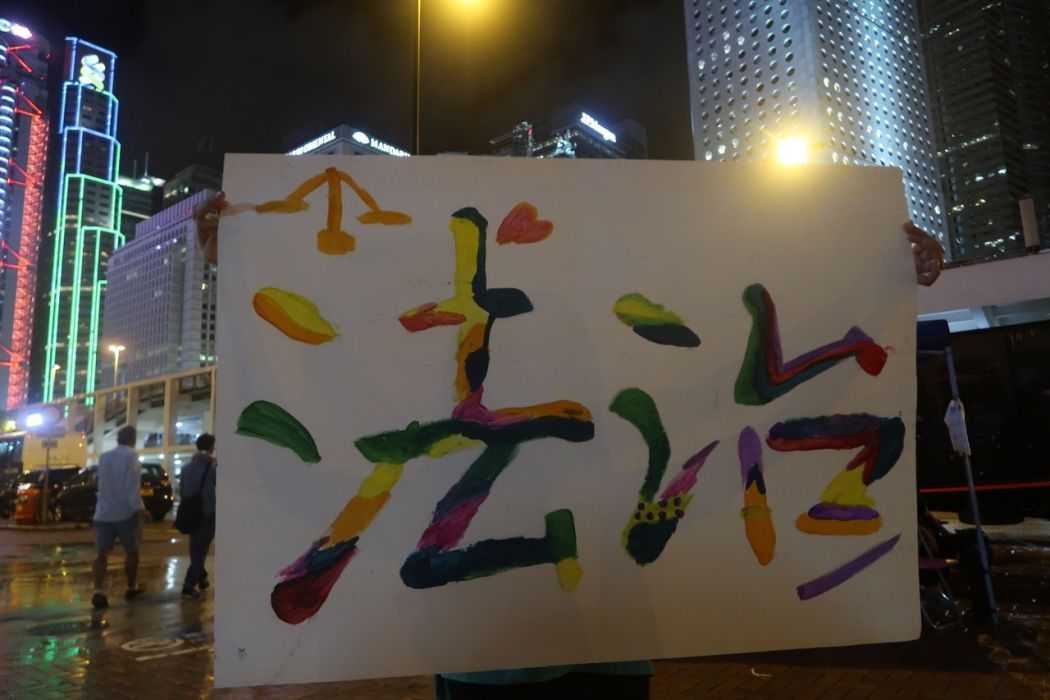For many years, the Hong Kong government has boasted about Hong Kong’s “rule of law.” In the past year, authorities have quietly downsized this boast, preferring the term “independent judiciary” – a telling shift.
Important as judicial impartiality is, it is but one component of rule of law: the impartiality of the prosecution service and the process by which legislation comes into being – to name but two – are as important.
But our government no longer boasts about those. Given some recent decisions, it knows full well that it has little to boast about.

In her recent letter exhorting Hong Kong people to support the Annex III laws, however, our chief executive has given up even on judicial independence. Rather, she seeks to assure us that constitutional freedoms will be maintained, and law enforcement conducted, “in accordance with the law.”
It may seem like semantic nit-picking to observe that something being in accordance with the law is different from rule of law, but the difference is both telling and, I think, indicative of why so many Hong Kong people are alarmed.
This is not an issue of translation. The Chinese for rule of law is 法律. Both “in accordance with the law” and “rule by law” are, in Chinese, 依法, though 法治 is sometimes used for the latter. So, although the grammatical specifics may differ, both languages have two different terms. Those terms attach to different meanings. What may those be?
Grammar is often a window to meaning, so let’s take “rule by law” as shorthand for “in accordance with the law,” and start with the preposition: rule by, or of law.
It may seem absurd to get tangled up in prepositions, but this is the way English works: to pick on someone is quite different from picking up someone; to chat up is quite different from chatting with. In the case at hand, ruling by law is much akin to driving by Google Maps or educating by example. What we have is a verb: someone is doing something – in this case, ruling – by using a tool, in this case, the law.

The trouble is that I use the tool which best suits the exigencies of the day – tomorrow I may drive by instinct or educate by rote. The fact that a ruling entity rules by law today is no guarantee that it will do so tomorrow. And, in the case of ruling, there are only two tools in the box: force and consent.
These are not mutually exclusive; most democracies use consent backed up by force. However, a government which has the consent of its people has little recourse to force. There will always be individuals – thieves, fraudsters and HKFP columnists – for whom force or reformation is needed, but there is no need to rule society as a whole by force if a vast majority of people consensually live their lives by laws they (by and large) agree with.
The primary means to engender agreement with the law, in today’s world, is a representative democracy. Give the people a say in the laws by which they are to abide, the theory runs, and they are more likely to abide by them.
Deny the people that say, they are less likely to abide by them. If the people are less likely to abide by the law, the government is more likely to have recourse to force.
So, rule by law implies a ruler using law as a tool. When it comes to the rule of law, however, we don’t drive of Google Maps or educate of example. In this context, “rule” is a noun – the rule of law.

But while we have the rule of law, we do not have a driver of Google Maps or an educator of example: “rule” is not only a noun but an abstract noun. And this matters because, while drivers and educators are agents who change the world and can be held responsible for the choices they make, abstract nouns do not refer to agents.
Thus, the phrase ”rule of law” implies no agent, no ruler. And, by taking the ruler out of the picture, the people involved in proposing, drafting and enacting legislation, those who are to enforce and adjudicate on it, are doing so on behalf of an abstract principle, the rule of law, rather than on behalf of a ruler, be it an autocrat, parliament or congress.
The needs of the day come and go, but the rule of law is an abstraction and thus permanent – or at least as permanent as anything in human affairs can be.
But, as per Carrie Lam’s letter, the government no longer supports rule of law, but rather governs “in accordance with the law.” And here, we come to the ominous second half of the phrase: “the law.”
This contains a second grammatical hint that something’s afoot: there is no definite article in “rule of law.” Law refers to the entire body of rights, the constitution, common law, statute, precedent, regulations and the like.
But, when acting in accordance with the law, “the law” can mean both law as an abstract entity, but also a specific law – the law of tort, for example. In other words, using “the” opens the door to governments picking and choosing which “the” is paramount.

Governments choose which law applies all the time, but this is on an administrative basis – the accused is a fraudster or a thief and different laws apply depending on which it is – but that’s not what the chief executive’s letter means by “according to the law.”
Our government, rather, has now given itself the option of no longer viewing the law as a body, and the concomitant rule by this over-arching abstract entity, but rather has opened the door to rule by the law, a law, one of many.
The body becomes subservient to the whole, and the whole at best the mere sum of its parts (Chinese has no definite articles, so the distinction between “law” and “the law” is less clear-cut, but the ambiguity weighs in the autocrat’s favour).
That the Hong Kong government intends to pick which law is paramount, is evident from the order in which the chief executive’s letter is laid out. After two long paragraphs of paranoid waffle, the reassurance on offer is: “Citizens will continue to enjoy the freedom[s] of… in accordance with the law.”
Which law? The reassurance comes not at the top of her letter but is the penultimate sentence of the penultimate paragraph – the position of an afterthought, not a conclusion (which is in the final paragraph).
From the context, it is almost impossible to believe that “the law” referred to is anything but the National Security law, and that we will continue to enjoy our freedoms only in as much as those freedoms are in accordance with that National Security law – in other words, that the National Security law will take precedence over and constrain those freedoms.

Now, to get to brass tacks. America’s experiment with sedition lasted from 1917-1921. The common law crime was removed from Britain’s books in 2009, in part because it was not compatible with freedom of speech, and in part because Britain saw the crime being used as a political weapon in so many former colonies and wished to lead by example in repealing it.
Peacefully advocating secession has not been a common law crime in my lifetime – the Scottish National Party continues to do so to this very day. These two crimes have no place in a free society; treason is essentially a wartime crime.
The Annex III laws are being enacted as such at least in part because, by putting them in Annex III, they will circumvent the system of rights that would otherwise see charges of sedition and peacefully advocating Hong Kong’s independence thrown out of court.
As such, the Annex III laws are, for all practical purposes, a constitutional amendment that prioritises the state’s paranoia over the freedoms of speech, the press, assembly and travel. Their effect on an open and pluralistic society can be nothing other than chilling. The chief executive’s reassurance is anything but.
